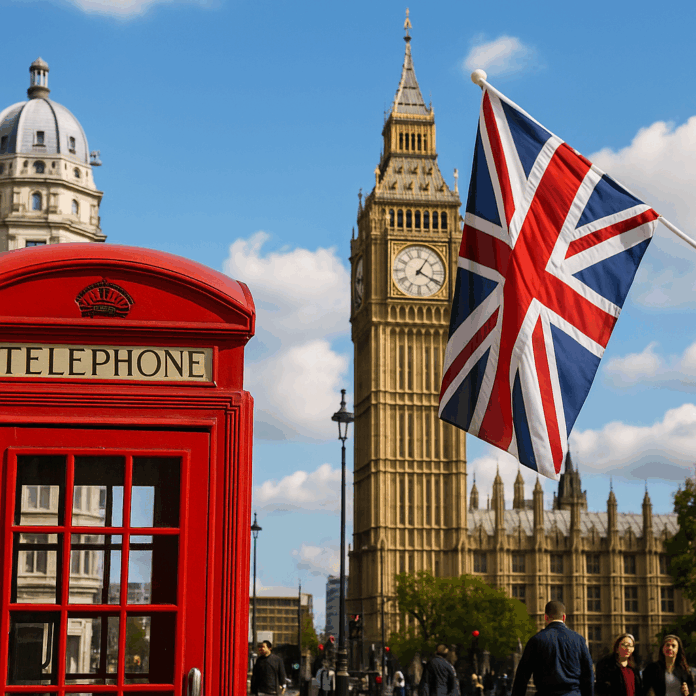Adopting a true British lifestyle is about far more than afternoon tea and royal pageantry. It’s about immersing yourself in centuries of tradition, subtle social norms, and everyday rituals that shape how people live, work, and interact across England, Scotland, Wales, and Northern Ireland. From mastering the art of polite conversation to embracing the country’s enduring love of nature and community, every detail contributes to a lifestyle that’s refined yet welcoming, traditional yet ever-evolving.
Introduction
Britain is more than a place — it’s a way of life. Rooted in history yet constantly adapting to the modern world, the British lifestyle is a unique blend of etiquette, humour, tradition, and quiet sophistication. It’s a culture that celebrates understatement over showiness, resilience over drama, and politeness over confrontation. Whether you’re moving to the UK, studying abroad, or simply fascinated by its cultural fabric, understanding and embracing this way of life will unlock a deeper, more meaningful experience of British society.
Living like a local doesn’t mean giving up your identity. Instead, it’s about learning how daily habits, unspoken rules, and shared values shape life in Britain — and how you can participate authentically. From navigating conversations with subtlety to enjoying time-honoured traditions, this guide takes you through the 10 essential steps to truly living the British way — not as a visitor, but as part of the fabric of everyday life.
1. Master the Art of Politeness and Manners
A Culture Built on Courtesy
Politeness is the backbone of British society. It’s more than good manners — it’s a deeply ingrained cultural expectation that smooths social interactions and shows respect for others. The British value understatement, restraint, and civility. Being polite isn’t about being overly formal; it’s about demonstrating thoughtfulness in everyday interactions.
One of the most distinctive features of British communication is the frequent use of “sorry.” People say sorry even when they’re not at fault — for example, if someone bumps into them. Similarly, phrases like “excuse me,” “please,” and “thank you” are used constantly, even in casual settings. Politeness extends beyond language into behaviour: queuing patiently, not interrupting others, and respecting personal space are all signs of good manners.
Etiquette in Daily Life
- Greeting: A simple “hello” or “hi” is sufficient, but adding a polite “How are you?” is common in social settings.
- Queuing: Standing in line patiently is a national virtue. Cutting the queue is considered one of the rudest things you can do.
- Public Transport: Offer your seat to the elderly or pregnant. Keep noise to a minimum and avoid loud phone calls.
- Thanking People: It’s customary to thank bus drivers, shop assistants, and even strangers who hold a door open for you.
Why It Matters
Politeness is often seen as a reflection of character in the UK. It’s not just about being nice — it’s about demonstrating empathy, respect, and social awareness. When you practise good manners, you show that you understand and value the unspoken codes of British society — a crucial step toward truly fitting in.
2. Embrace the Importance of Tea Culture
Tea: Britain’s Most Beloved Ritual
If there’s one tradition that defines Britain, it’s tea. With roots dating back to the 17th century, when it was introduced from China and later popularised by Catherine of Braganza (wife of King Charles II), tea quickly became an integral part of British daily life. Today, Britons drink over 100 million cups of tea every day, making the UK one of the top tea-consuming nations in the world.
Tea isn’t just a drink — it’s a social glue. It’s offered during celebrations, after bad news, and as a simple act of hospitality. “Shall I put the kettle on?” is often the first thing a Brit says when someone visits. Tea breaks at work are also sacred, serving as a time for relaxation, conversation, and community bonding.
The Ritual of Afternoon Tea
Introduced in the 1840s by Anna, Duchess of Bedford, afternoon tea was designed to bridge the long gap between lunch and dinner. Today, it’s a quintessential British tradition featuring finger sandwiches, scones with clotted cream and jam, and an assortment of pastries — all accompanied by perfectly brewed tea served in fine china.
Modern Britain has adapted this ritual with variations like cream tea (common in Devon and Cornwall) and high tea, originally a working-class meal served with hearty savouries.
How to Join the Tradition
- Accept invitations for tea — it’s a social gesture.
- Learn the basics of brewing: loose-leaf tea, freshly boiled water, and steeping for the right time.
- Familiarise yourself with tea etiquette — stir gently, never clink the spoon, and avoid slurping.
By embracing tea culture, you’re not just drinking a beverage — you’re participating in a centuries-old tradition that symbolises hospitality, comfort, and connection.
3. Master the Art of Small Talk
The Subtle Social Skill
To truly integrate into British society, you must master the understated yet essential art of small talk. Unlike cultures where deep conversations happen quickly, the British prefer to build rapport gradually. Small talk serves as a bridge — a way to connect without being intrusive.
The most common topic? The weather. Britain’s unpredictable climate offers endless conversational material, from “bit chilly today, isn’t it?” to “can’t believe it’s raining again.” It’s not about meteorology — it’s a social ritual that signals openness and friendliness.
Other Go-To Topics
- Transport: Commuting woes are a shared experience.
- Sports: Football, cricket, and rugby dominate casual chat.
- Television: Popular shows like Strictly Come Dancing or The Great British Bake Off make great conversation starters.
What to Avoid
Politics, money, religion, and personal relationships are generally off-limits until you know someone well. Privacy is highly valued, and probing questions can feel uncomfortable.
Why It’s Important
Small talk may seem trivial, but it’s a vital social skill. It helps you build trust, ease into relationships, and show that you respect social boundaries. Even a brief chat at the bus stop or corner shop can make a positive impression and pave the way for deeper connections.
4. Understand the British Sense of Humour
A National Character Trait
Humour is one of Britain’s defining cultural characteristics — and one of the hardest for outsiders to grasp. British humour is subtle, clever, and often self-deprecating. It relies heavily on irony, understatement, and wordplay, and it’s deeply woven into social interactions.
A classic example is self-deprecating humour, where individuals make jokes at their own expense. It’s not a sign of low self-esteem but a way to appear modest and approachable. Sarcasm and deadpan delivery — saying something humorous with a straight face — are also hallmarks of British comedy.
Famous Examples
- The dry wit of shows like Yes, Minister or The Office.
- The satirical brilliance of Monty Python.
- The absurd humour in Blackadder or Fawlty Towers.
Why It Matters
Humour is a social glue in Britain — a way to bond, defuse tension, and show intelligence. Being able to laugh at yourself (and understand when others are doing the same) is a key step to social acceptance. If someone gently teases you, it’s often a sign they’re comfortable around you.
5. Participate in Community Life
The Heart of British Society
Community is central to the British way of life. From village fêtes and charity bake sales to local theatre productions and park clean-up days, community activities reflect a deeply held belief in collective responsibility and social cohesion.
In small towns and rural areas, parish councils and village halls serve as community hubs. In cities, community life thrives through neighbourhood associations, cultural festivals, and volunteering initiatives. Being involved isn’t just about contributing — it’s about belonging.
Ways to Get Involved
- Join a local sports team or book club.
- Volunteer for a charity or local food bank.
- Attend local markets, fairs, or seasonal events.
Why It Matters
Community engagement is highly valued in Britain. It shows that you’re invested in the well-being of the place you live and helps you build meaningful relationships. It also offers an authentic window into British life — one that tourists rarely see.
6. Respect British Traditions and Holidays
Celebrating History and Heritage
British traditions reflect centuries of history and cultural evolution. Participating in them connects you to the nation’s collective memory and identity. From solemn royal ceremonies to quirky local customs, these events embody the diversity and richness of British heritage.
National Traditions
- Remembrance Sunday: Held in November to honour those who died in war.
- Bonfire Night (Guy Fawkes Night): Celebrated on 5th November with fireworks and bonfires.
- Trooping the Colour: A ceremonial parade marking the monarch’s official birthday.
Regional Traditions
- Cheese Rolling (Gloucestershire): A daring downhill race chasing a rolling wheel of cheese.
- Up Helly Aa (Shetland): A Viking fire festival celebrating Norse heritage.
- Morris Dancing: A centuries-old folk dance performed at festivals and fairs.
Why It Matters
By engaging in these traditions, you demonstrate respect for British history and an interest in the stories that shape national identity. It also deepens your cultural understanding and strengthens your sense of belonging.
7. Embrace the Pub Culture
More Than a Place to Drink
The British pub is a cultural institution — part living room, part social hub. Pubs date back to Roman times, but they flourished during the Middle Ages as communal meeting places. Today, there are over 45,000 pubs across the UK, many of them centuries old.
Pubs serve as informal community centres. People meet here to watch sports, celebrate milestones, debate politics, or simply relax. They’re places where social barriers break down and conversations flow freely.
Pub Etiquette
- Order at the bar rather than waiting for table service.
- Offer to “buy a round” — taking turns paying for drinks is a social norm.
- Don’t feel pressured to drink alcohol; many pubs serve coffee, soft drinks, and meals.
Traditional Pub Fare
Classic dishes like fish and chips, steak and ale pie, and Sunday roasts are pub staples. Many pubs now focus on locally sourced ingredients and craft beers, reflecting Britain’s growing foodie culture.
Why It Matters
Pub culture is about community, conversation, and connection. Participating — even occasionally — is an excellent way to immerse yourself in British social life and experience a cherished national tradition.
8. Appreciate the Great Outdoors
A Nation That Loves Nature
Despite its urban centres, Britain is a country deeply connected to nature. The UK boasts 15 National Parks, thousands of miles of coastal paths, and countless gardens and green spaces. This love of nature is reflected in national pastimes like walking, gardening, and birdwatching.
Outdoor Traditions
- The Sunday Walk: A cherished family ritual, often followed by a pub lunch.
- Rambles and Hikes: Walking groups explore countryside trails across the UK.
- Gardening: Nearly half of British households maintain a garden, reflecting a cultural passion for nature and self-sufficiency.
Why It Matters
The British view time outdoors as essential for well-being. Participating in this tradition — whether through weekend hikes, picnics in the park, or leisurely seaside strolls — is both a lifestyle choice and a cultural experience.
9. Develop a Respect for Privacy and Personal Space
The Unspoken Social Contract
Privacy is deeply valued in Britain. Personal boundaries are respected, and intrusiveness is frowned upon. People generally avoid discussing salaries, politics, or family matters with acquaintances. Even among friends, some topics remain off-limits.
Social Norms
- Avoid personal questions when meeting someone for the first time.
- Knock before entering rooms or offices.
- Stand at a comfortable distance when speaking to someone.
Why It Matters
Respecting privacy shows cultural sensitivity and builds trust. It’s one of the most effective ways to develop strong, respectful relationships — both personally and professionally — in British society.
10. Keep Up With British News and Culture
Stay Informed, Stay Engaged
To truly integrate into British life, stay informed about current events and cultural trends. Britain is a nation that values informed conversation — discussing news, literature, and cultural affairs is a common social activity.
Ways to Stay Connected
- Read newspapers: The Times, The Guardian, and The Telegraph offer diverse perspectives.
- Watch British media: Programmes from the BBC and Channel 4 offer insights into social and political debates.
- Explore British culture: Attend theatre performances, visit museums, and read works by British authors from Dickens to Zadie Smith.
Why It Matters
Understanding what’s happening in Britain — socially, politically, and culturally — helps you engage meaningfully in conversations and understand the forces shaping everyday life.
FAQs
1. What is considered polite behaviour in the UK?
Politeness is a deeply ingrained part of British culture and goes beyond simply saying “please,” “thank you,” and “sorry.” It involves queuing patiently without complaining, respecting others’ personal space, speaking in a calm and measured tone, and showing gratitude for even small gestures. Simple acts like holding doors open, thanking a bus driver, or apologising for minor inconveniences are everyday examples. Such behaviours demonstrate respect, consideration, and social awareness — qualities that are highly valued in British society.
2. Do I need to drink tea to fit in?
You don’t have to drink tea to feel accepted, but understanding and participating in tea culture can help you connect more easily with locals. Tea is often associated with hospitality, comfort, and social bonding. Whether it’s a casual “cuppa” during a work break or a traditional afternoon tea with scones and sandwiches, sharing tea is an opportunity to engage in meaningful conversations. Accepting or offering tea shows appreciation for a central British custom and can be an easy way to build friendships.
3. Why is small talk so important in British culture?
Small talk is more than idle chatter in the UK — it’s a vital social tool that helps people connect politely without overstepping boundaries. It reflects cultural awareness, friendliness, and respect for others’ personal space. Neutral topics such as the unpredictable weather, popular TV shows, weekend plans, or local news are safe ways to initiate conversations. By mastering small talk, you demonstrate a willingness to engage socially, build trust gradually, and create a comfortable environment for deeper discussions in the future.
4. Is British humour difficult to understand?
It can be challenging at first because British humour is often subtle, layered, and heavily reliant on irony, understatement, and self-deprecation. Sarcasm delivered with a straight face or jokes that mock the speaker themselves are common forms. This type of humour is used to build rapport, defuse tension, and show intelligence. Once you learn to recognise the cues — such as tone, context, and playful teasing — you’ll find that humour becomes an effective way to connect and form deeper social bonds.
5. What are some major British traditions I should know about?
Britain has a rich calendar of traditions, from national celebrations like Christmas, Easter, and Bonfire Night to solemn events such as Remembrance Sunday. Royal ceremonies like Trooping the Colour and state occasions reflect centuries of history, while local customs — like cheese rolling in Gloucestershire or Morris dancing in rural villages — showcase regional diversity. Participating in these events not only enriches your cultural understanding but also demonstrates respect for British heritage and a willingness to engage with the community authentically.
6. Are pubs only about drinking alcohol?
Absolutely not. British pubs are more than places to drink — they’re social institutions where communities come together. People visit pubs to share meals, watch sports, attend quiz nights, celebrate occasions, or simply enjoy conversation. Many pubs serve a wide range of non-alcoholic beverages and offer hearty meals like Sunday roasts or fish and chips. Even if you don’t drink, being part of pub culture is a valuable way to experience British social life, meet locals, and participate in a cherished tradition.
7. How do Britons typically spend their weekends?
Weekends in the UK are a time for relaxation, connection, and recreation. Many people enjoy outdoor activities such as countryside walks, hiking, cycling, or visiting local parks. Socialising with friends over a pub lunch, exploring museums and galleries, or attending sports events are also popular pastimes. Sundays often focus on family, with traditions like a roast dinner bringing loved ones together. This balance between leisure, culture, and quality time reflects the British emphasis on well-being and the importance of maintaining a healthy work-life balance.
Final Thoughts
Adopting a true British lifestyle is a journey — one that blends history, tradition, and modernity into a rich cultural experience. It’s about more than copying habits; it’s about understanding the values that underpin them. From politeness and humour to community engagement and a love for the outdoors, every aspect reveals a deeper layer of British identity.
Ultimately, becoming part of British life means embracing its rhythms with curiosity, humility, and respect. As you learn to navigate small talk, savour afternoon tea, and enjoy a quiet Sunday walk, you’ll discover that British culture isn’t just something to observe — it’s something to live. And once you do, the UK will feel less like a destination and more like home.






















